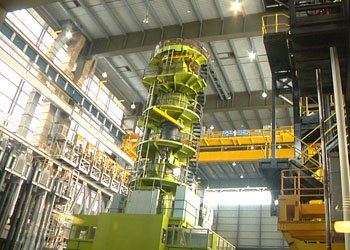The Government should not underestimate the “huge potential” of energy efficiency and renewable energy to meet climate targets especially in light of the uncertainty of new nuclear power.
That’s what WWF believes in response to today’s Energy and Climate Change Committee’s report, which suggested new nuclear power stations are essential if the UK is to meet climate change targets.
However, the environmental group stressed the UK could successfully decarbonise its economy just as easily by focusing on renewables and efficiency programmes instead. Nick Molho, Head of Energy Policy at WWF-UK said: “The continued cost escalations and construction delays facing the nuclear industry should not undermine the UK’s ambitions to decarbonise its economy. Concerted efforts on both deploying renewable energy technologies at scale and prioritising energy efficiency could deliver the bulk of the UK’s decarbonisation ambitions.
“A focus on renewable energy technologies, where the UK is often an industrial leader, could deliver both huge cost reductions and a substantial boost to UK economic growth. But this will only materialise if the Government shows that it believes in the long-term potential of renewables, puts an end to political infighting and provides the industry with the clear long-term investment certainty it needs to invest in the UK.”
WWF-UK claims energy efficiency could cut costs in the power sector by £10 billion a year by 2030 and if the renewables industry could grow at a steady rate over the next 20 years, it could provide more than 60% of the nation’s electricity by 2030.
Greenpeace agrees renewable energy should be given more importance. Head of Policy Doug Parr said: “The fact new nuclear may not deliver is not news to anyone who’s been following the issue. Instead of putting all its effort into covertly subsidising nuclear, the Government needs a plan B with energy efficiency and renewables at its core, which are able to deliver now.”
However, the Institution of Mechanical Engineers (IMechE) said a balanced energy mix is essential for UK to have a secure, low carbon electricity supply in the long-term. But it said the Government has been “painfully slow” in implementing its policies and as a result very few power plants have been built in the last five years.
Alistair Smith, Chairman of the Power Industries Division said: “The Government needs to agree the level of support or ‘strike price’ for projects where planning, engineering and funding have advanced sufficiently for construction to begin. This will encourage developers to progress their projects quickly. Dithering on this issue just plays into the hands of the developers who will be in an even stronger position if the capacity margins reduce and there becomes a real threat of the lights going out.”
EDF Energy has a project for two new reactors (pictured) at Hinkley Point C, which has been granted design approval by regulators and given site licence. The energy supplier said it is working with the Government to agree a price for the electricity through the Contracts for Difference (CfD), which has been supported by the Climate Change Committee but concerned about the lack of transparency around price negotiations between the Government and industry.
The CfD is a mechanism which is expected to provide incentives for businesses to invest in low-carbon energy generation. EDF Energy, however, said it will be “fair and balanced” for both UK consumers and investors.
The supplier stated: “Agreeing this contract is the key to attracting investors and to unlock funding for this project which will give the UK the secure, low carbon energy it needs for the future. The Government can act now to deliver new nuclear in time to avoid the need for a back-up plan. When the Contract agreeing a price for the electricity is published, it will show in a transparent way that new nuclear is competitive with all other forms of low carbon energy and good value for consumers – satisfying a key recommendation made by this cross-party committee of MPs.”
EDF Energy claims the Hinkley Point C project has the potential to employ 25,000 people during its construction.





